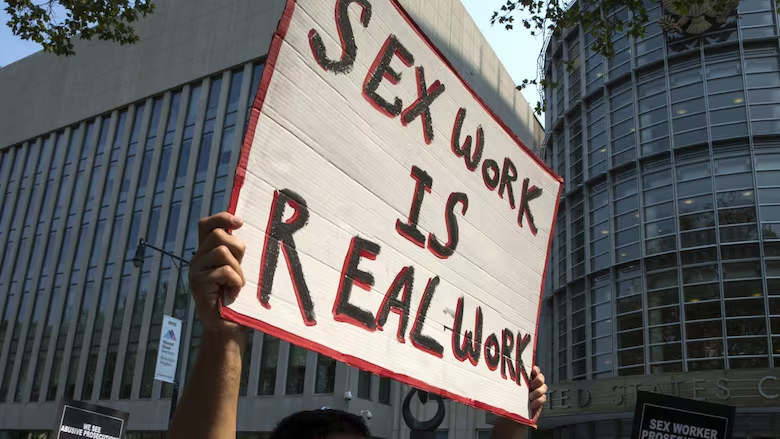Outdated convictions must be deleted from sex workers' records, lawsuit argues
Proposed class action says outdated criminal records hold people back from job and volunteer opportunities

A little more than a year ago, Susan Davis applied to volunteer at her local Vancouver community policing centre. A criminal record check was an essential part of that process.
When the check came back, Davis said she was shocked to see it included 30-year-old charges related to sex work — offences that are no longer crimes in Canada and for which she'd received a pardon.
"Everybody in the community knows that I'm a sex worker — I'm very out of the closet — but I didn't have any control over the release of that information," Davis, a longtime sex worker and advocate told CBC News.
"This is a very real ticking time bomb, especially for people who've moved on with their lives."
That experience drove Davis to become lead plaintiff in a proposed class action lawsuit filed in B.C. Supreme Court on Wednesday.
The notice of claim calls for police and government agencies at all levels to permanently delete and expunge from their databases and other records all convictions for sex work-related crimes that were struck down by the Supreme Court of Canada in a landmark 2013 decision.
It also calls for an order compelling the Canadian government to request foreign governments to expunge the relevant records.
Records 'not evidence of criminality'
The claim alleges that keeping these outdated convictions on file could have serious negative consequences for people applying for jobs or trying to cross borders.
"Sex work records constitute private information of a personal and confidential nature, and are not evidence of criminality," the claim reads.
"There is no lawful authority to keep, maintain, use, access or disseminate sex work records."
The named defendants include the Vancouver Police Department and City of Vancouver, RCMP Commissioner Brenda Lucki, the B.C. minister of public safety and solicitor general, the attorney general of Canada and the PRIMECorp database used by police.
The decision in 2013's Canada v. Bedford case saw Canada's highest court unanimously striking down portions of the Criminal Code prohibiting keeping bawdy houses, living off the avails of prostitution and communicating in public with clients.

The proposed class members in Davis's suit include people like her who were charged with or convicted of those offences or had police interactions related to those activities.
Davis said that, in her case, her convictions had already been expunged from publicly available records, but they still existed within the Vancouver Police Department's internal system. She says she learned her arresting officers had coded them to remain on file for 99 years.
"It's a reflection of the time. They hated us and wanted to cast us out of society. Once a prostitute, always a prostitute," she said.
Davis was able to get the convictions removed from her file, but she worries about how a situation like this might have played out for someone who isn't open about their involvement in the sex trade or for someone who is trying to make a clean break from the past.
"Maybe nobody in their family knows that they were ever a sex worker. They want to volunteer for their kid's sports team or the Boy Scouts, and then boom, pop, here comes this information that destroys their lives," she said.
Davis says she has spoken to one woman who was trying to leave sex work but has lost out on job opportunities because of an outdated criminal record.
None of the defendants named in the action have filed a response. None of the lawsuit's allegations have been tested in court and the claim has not yet been certified as a class action suit.